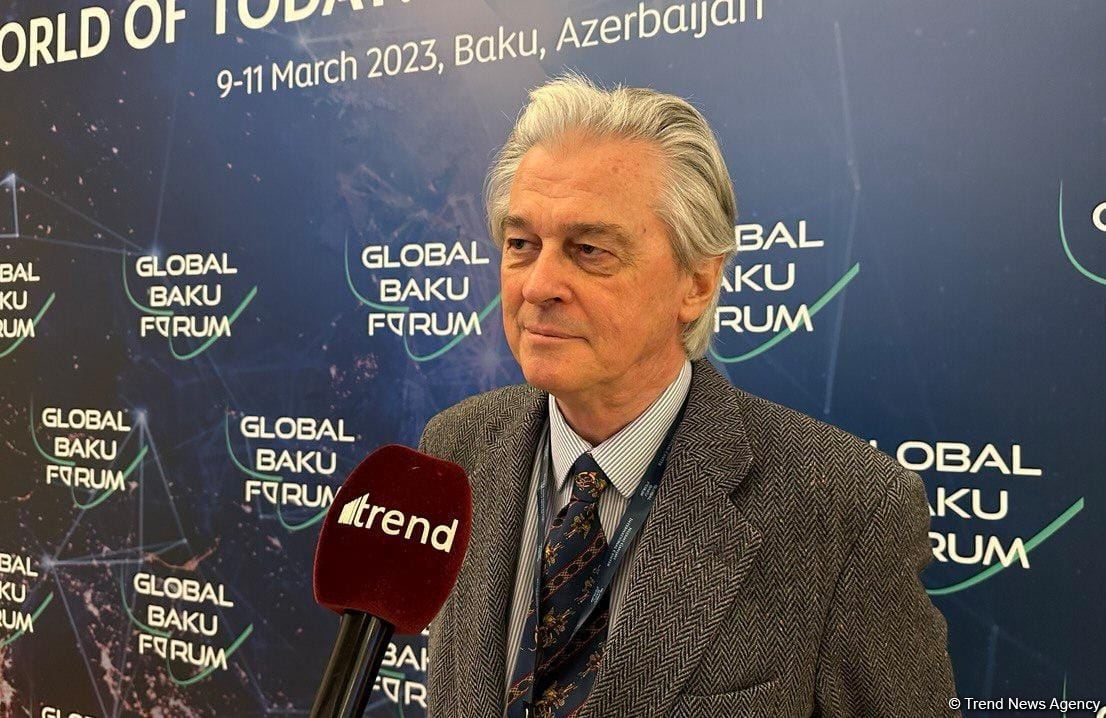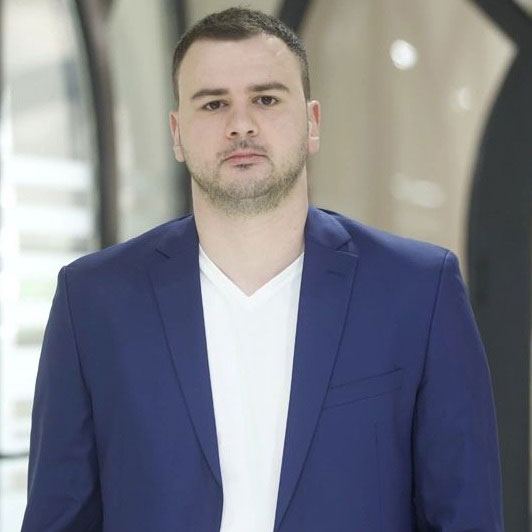BAKU, Azerbaijan, March 10. Although Azerbaijan has significant oil and gas reserves, Baku has taken a course towards the development of green energy and sustainable development, making Azerbaijan a special country, former UN Resident Coordinator in Ukraine Francis O'Donnell told Trend on the sidelines of the 10th Global Baku Forum.
O'Donnell said that the Azerbaijani model should be an example for other countries exporting traditional energy sources.
In terms of political factors, Azerbaijan has strengthened its position due to its contribution to the transformation of the Non-Aligned Movement (NAM), he noted.
"The transformation of NAM is a very important factor. The world needs the Movement again as an organization as the world is torn apart by what many people call a new cold war, and it’s very important that the voice of the member countries of the Movement, which make up the majority of countries represented in the UN, be heard and taken into account in the context of building a new world," the former UN official also said.
Besides, O'Donnell noted the importance of discussions on UN transformation and emphasized the role which NAM countries can play in this issue.
The Irish diplomat also pointed out that the great work carried out by the leadership of Azerbaijan and the Nizami Ganjavi Center contributed to the attractiveness of the Baku Global Forum as a platform for the exchange of opinions on important issues of present times.
Organized by the Nizami Ganjavi International Center, under the patronage of President of Azerbaijan Ilham Aliyev, the X Global Baku Forum kicked off on March 9. The forum’s topic this year is "The World of Today: Challenges and Hopes".
The Forum is attended by high-ranking guests from dozens of countries, among them current and former heads of states and governments, prominent public and political figures, leading foreign experts, the leadership of the World Health Organization, the League of Arab States, and other major international organizations.
The Forum, which will last until March 11, will look at factors posing a threat to the new world order, including the issue of security and prospects for peace, the establishment of stability in a divided world, its impact on global peace, ways of solving the challenges ahead, conflicts that shake the world, and threats. The topics also include climate safety, food safety and nuclear safety, as well as work to be done in the post-pandemic period.
Measures to prevent migration as a symptom of global poverty, inequality, climate crisis and conflicts will also be on the agenda. Participants will share their ideas about the future of Europe, explore the source of populism and extremism, and determine ways to effectively fight it.







